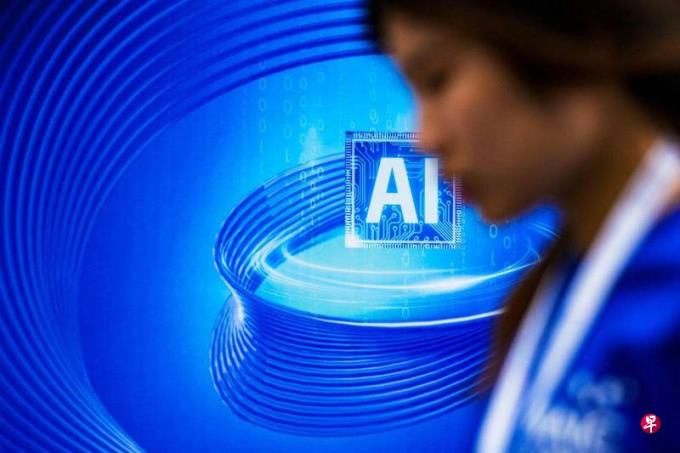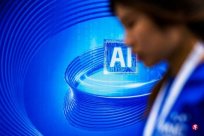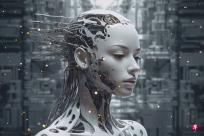
The Beijing Internet Court on artificial intelligence (AI) generating content can be protected by copyright protection, causing a sensation in the artificial intelligence industry, especially because it conflicts with other major jurisdictions including the United States.In fact, to a certain extent, the key is that this ruling has promoted China to surpass the United States and become the overall measure of artificial intelligence global leaders.
Not everyone thinks that the ruling is of great significance.Some commentators pointed out that the Beijing Internet Court is a relatively low -level institution. In the Chinese judicial system, the court has no obligation to follow the precedent.However, this explanation is technically correct, but it does not grasp the point because it pays narrow attention to Chinese law on paper.In China's legal context, decisions such as reflection and policies will affect both.
In 2017, Chinese leaders set the grand goal of achieving global artificial intelligence hegemony by 2030.But it turns out that the obstacles of success are huge and continue to double.In the past year, the United States has made it more and more difficult for China to obtain the required chips that develop advanced artificial intelligence technology, such as large language models that can compete with American artificial intelligence technology.The Biden government further tightened these regulations in October last year.
In order to cope with this action, the Chinese government mobilized the power of the country to accelerate the development of artificial intelligence and guide a large amount of investment to the industry and restrict regulatory obstacles.In the Interim Measures for the Management of Artificial Intelligence Services in August last year, the Chinese government urged administrative agencies and courts at all levels to adopt cautious and tolerant supervision of artificial intelligence.
If the recent ruling of the Beijing Internet Court can explain, it is that the judicial organs have remembered this guidance.After all, the copyright protection of some artificial intelligence generates not only directly enhances the motivation to use artificial intelligence, but also enhances the commercial value of artificial intelligence products and services.
On the contrary, denying the copyright of artificial intelligence generate content may encourage deception in accident, and digital artists will try to distort the source of creation.This will blur the boundaries between artificial intelligence generation works and artificial finished products, which pose a threat to the future development of the basic model of artificial intelligence.These models highly depend on high -quality data from human -generated content for training.
For the United States, the prohibition of copyright protection of artificial intelligence generation seems to be greater than disadvantages.The U.S. Copyright Administration refuses to recognize such copyrights in the three cases, even if the content reflects the major creativity or intellectual contribution of human beings.In one case, an artist tried more than 600 prompts (this is considerable efforts and creative investment), creating an artificial intelligence generating image, and eventually won the award in the art competition, but was informed that the copyright was not recognized.
This reluctance is not unbearable.The ruling of the Beijing Internet Court may be consistent with the artificial intelligence today in China, but it has also opened the Pandora Box facing legal and moral challenges.For example, when the creators of similar artificial intelligence art works have objections to infringe copyright, the Chinese court may be overwhelmed due to surge in lawsuits.At the same time, they must also face a controversial question, whether the copyright owners can use their artificial intelligence to generate works because of artificial intelligence training.This makes the Chinese courts and legislative agencies almost inevitably the amendments to existing copyright law and theory.
The issue of copyright and artificial intelligence training has caused fierce debate in many jurisdictions.In the United States, artists, writers, and others have initiated a series of lawsuits, accusing major AI companies such as OpenAI, Meta and Stability AI, without permission to use their copyright -protected works to train the AI system.In Europe, the artificial intelligence bill proposed by the European Parliament requires the company to disclose that they are protected by all copyright -protected materials for training generating artificial intelligence systems.This rule will make artificial intelligence companies vulnerable to infringement of copyright litigation, while increasing the influence of copyright owners in compensation negotiations.
For China, solving these problems may be particularly complicated.Chinese law only allows the use of copyright -protected materials for free under very limited circumstances.However, as the Chinese court's ruling is increasingly consistent with Beijing's instructions. In order to facilitate artificial intelligence companies to use copyright -protected materials, they may soon start taking more loose practices and approve more and more and more and more.Exceptions.
However, the cost of doing so may be high.In the long run, artificial intelligence training is used for artificial intelligence -protected materials, adopting a more loose approach, and a large number of artificial intelligence generation content in the Chinese market may eventually hinder human creativity.
From the government to the court, Chinese officials seem to be attached to ensuring that China can lead artificial intelligence.But the consequences of their approach may be far -reaching.This legal trend may lead to social crisis, such as a large number of unemployment and extensive public dissatisfaction in creative industries.This is not unimaginable.However, at present, China is expected to continue to cultivate the artificial intelligence industry at all costs.
The author Zhang Huyue is a professor of law at New York University, an associate professor of law and director of the Chinese Law Research Center of the University of Hong Kong
English Original: China ’s Short-Sighted AI Regulation
All rights reserved: Project syndicate, 2023.



